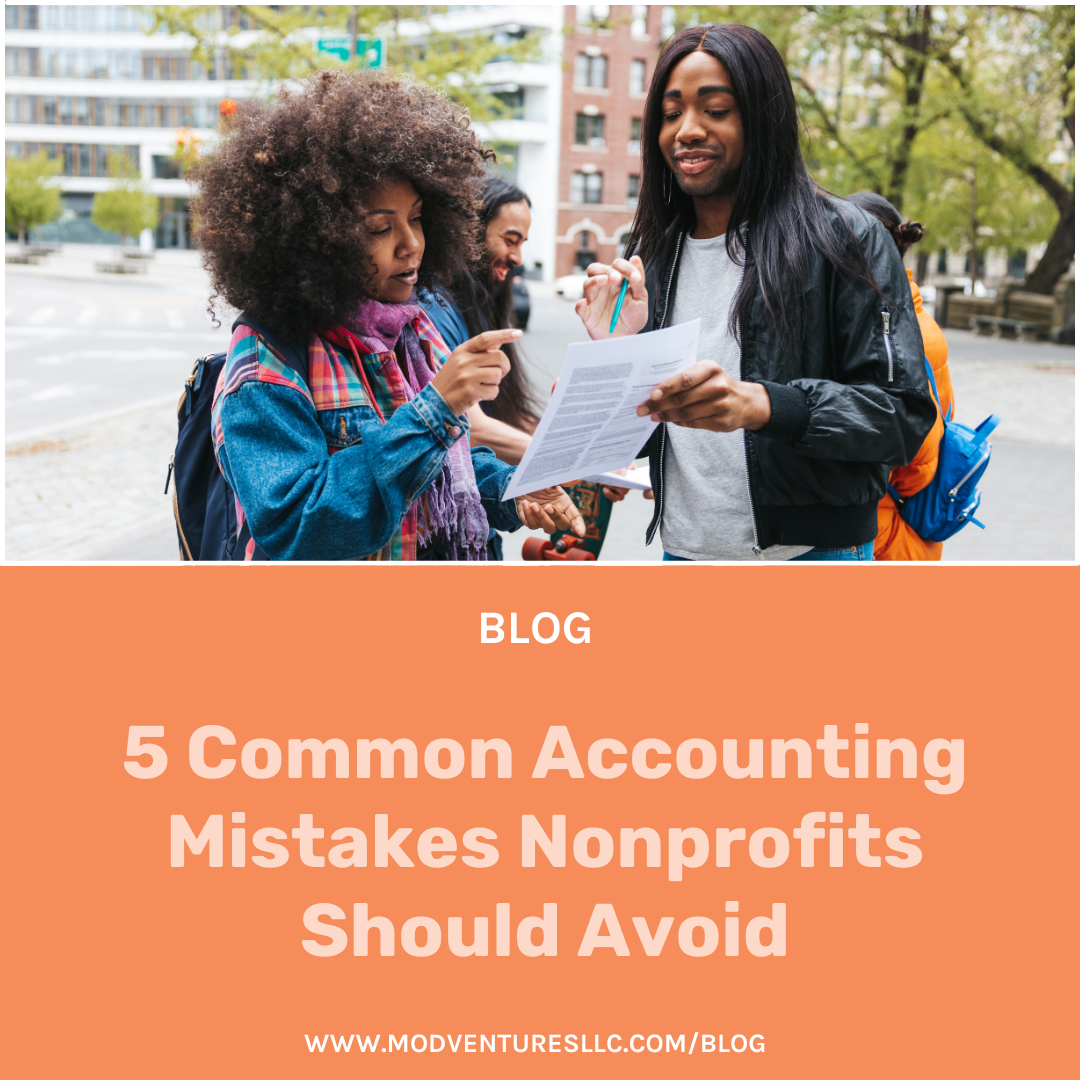By: Gabrielle Luoma CPA, CGMA
By: Gabrielle Luoma CPA, CGMA
Your nonprofit organization has different financial requirements than for-profit organizations. When you’re not carefully organizing, preparing, and analyzing your finances, it’s easy to make big mistakes from simple miscalculations. Many common accounting mistakes nonprofits make are made due to a lack of preparation.
We’ve compiled a quick list of the five most common mistakes nonprofits make in their accounting and how to avoid them to help you prepare to grow and expand your organization without stressing your finances:
The Five Most Common Accounting Mistakes Nonprofits Make and How to Avoid Them
While many problems can be avoided by setting appropriate systems for your accounting in your organization, others do relate to reporting your finances and how your organization is handling its data.
Let’s take a look at the common accounting mistakes that your nonprofit could be making:
#1. Your Nonprofit Has No Accounting System or Software
As we mentioned above, an accounting system is key to keeping your organization’s finances organized and data accessible. Keeping your accounts organized will also allow you to create accurate reports for your organization’s financial statements – which are required by the IRS to keep your nonprofit in good standing.
This is the easiest problem to avoid. As you launch your organization, invest in software or an experienced accountant to set up your systems for accurate accounting and bookkeeping. You’ll need to make sure that the accountant is experienced with nonprofits, as a not-for-profit organization has different responsibilities for reporting.
#2. Your Nonprofit is Not Provide Accurate (or All) Financial Reports
To keep your nonprofit in good standing, you have to provide the required information and financial reports to the IRS. While most standard reports are submitted, it’s easy to skip over or accidentally provide inaccurate information for reports like your nonprofit statement of activities.
While this is not necessarily a quick one to fix, you will need to audit your current reports for accuracy by comparing them to how the document should be managed. Additionally, you will need to check to ensure that you’re using the correct information to fill out your documents and reports such as what is considered an expense, your overheads, if you’re using thecorrect fiscal year-end, etc.
#3. Your Nonprofit is Incorrectly Navigating Restricted Grants or Restricted Funds
Unlike traditional fundraising and campaigns that your nonprofit is allowed to allocate as necessary, restricted grants and restricted funds must be used in a specific way or place in your non-profit. This type of funding can be difficult to manage within your organization’s accounting department or software, most of the time, these funds fall through the cracks of your pre-existing systems.
In most situations, you can avoid any complications by carefully recording your restricted funds and their use. When your organization needs the funds for another purpose, you will need to follow the UPMIFA along with any restrictions that are specific to your state of operation. You can further avoid this situation by limiting the amount of restricted funds your organization accepts if you choose to accept any at all.
Restricted funds can sometimes be more harmful than helpful to your organization’s financial health, if you’re considering accepting restricted funds but would like a second opinion, set up a consultation with our team.
#4. You’re Not Keeping Your Financial Data Safe
Your nonprofit should be taking youronline financial security, and general online security, seriously. Data breaches have an average cost of around $7.91 million in the United States – which is a huge potential loss for your organization.
When you set up your organization’s systems, invest in cybersecurity to keep your systems and your information secure. Although an obvious potential risk, many organizations skip this step because they don’t think of it or they don’t believe that their organization will be targeted or at risk.
#5. You Need to Work With a Professional, but You’re Not
It’s easy to say that you will handle your organization’s finances in-house or you’ll do it yourself when you first start – but there is a limit to what you can do by yourself as your organization grows. Many organizations find themselves in a situation where they experience growth or change and need a professional nonprofit accountant or even a CFO.
Working with a virtual accountant or CFO is often the easiest way to prevent struggling during periods of growth for nonprofits. Virtual firms allow you to easily expand your accounting department and handle times of rapid change or growth thanks to their team. This can prevent problems in cash flow, mismanagement of funds, and more.
You May Also Love
CLOSE






